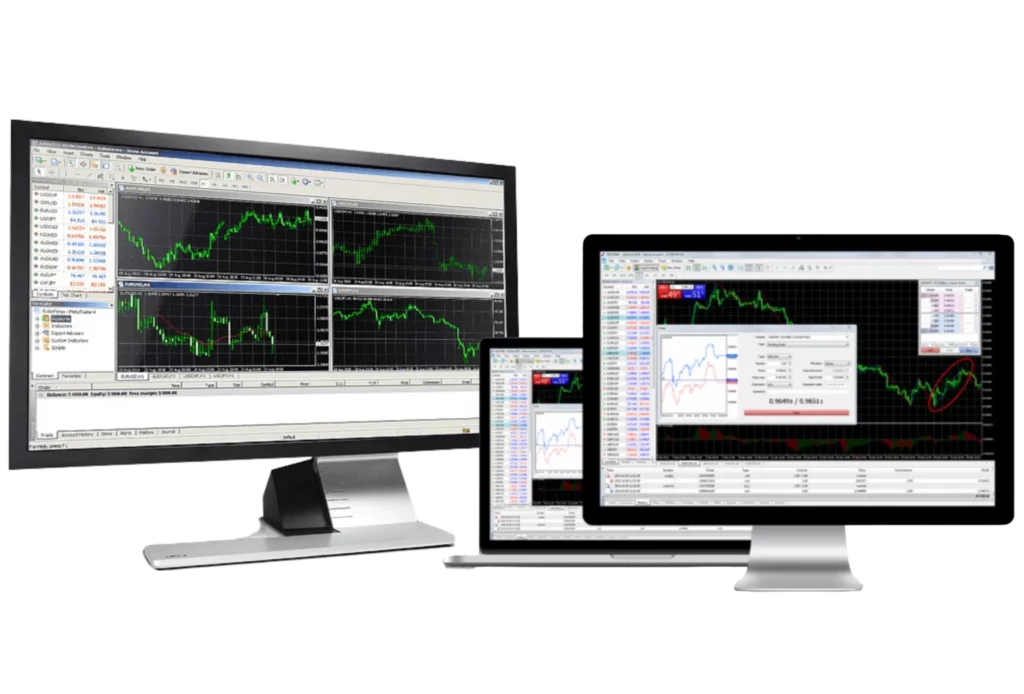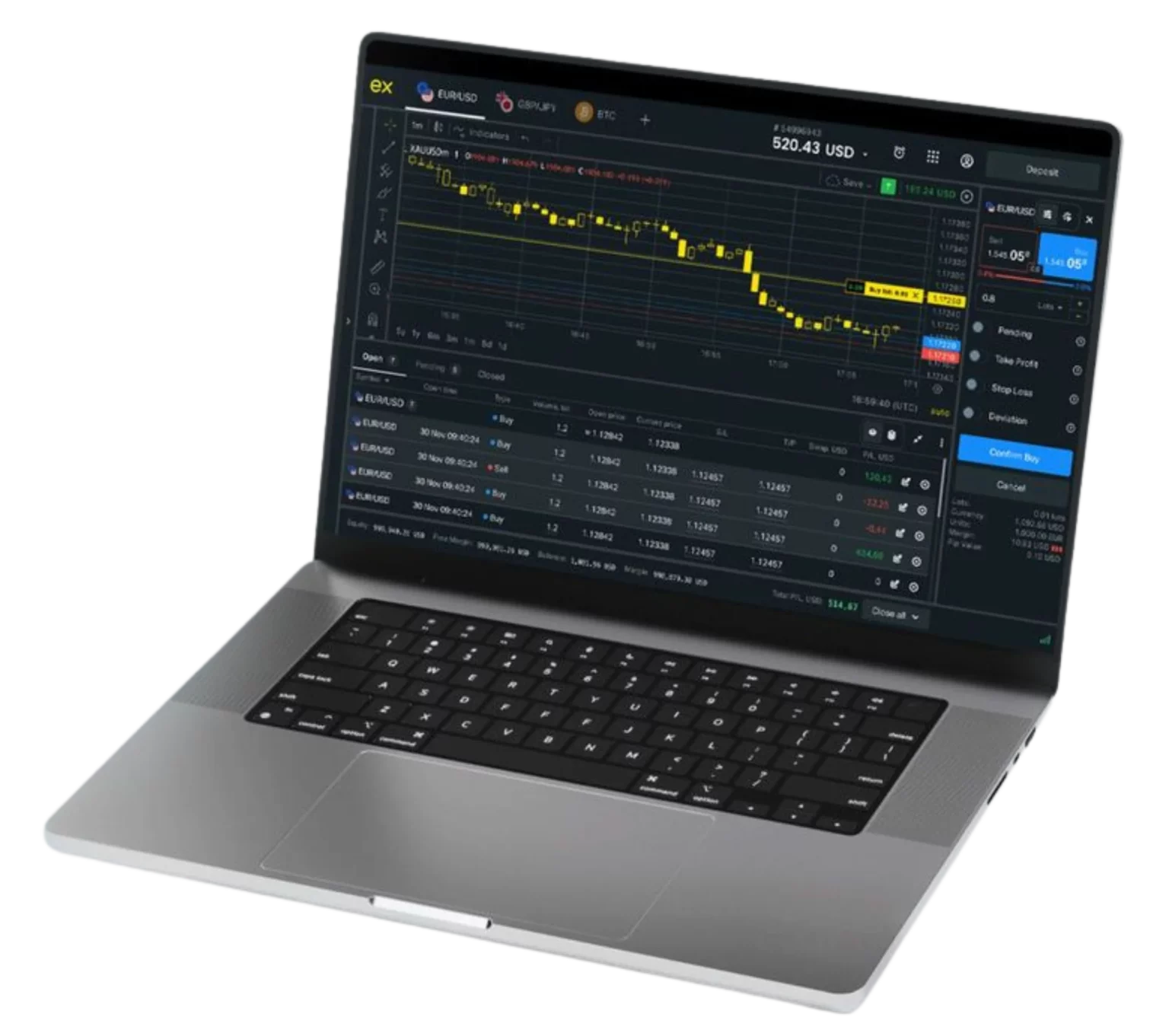- What is a Minimum Deposit?
- Minimum Deposit Requirements on Exness
- Payment Methods for Deposits
- How to Deposit Funds on Exness
- Benefits of Low Minimum Deposit
- Risks and Considerations
- Exness Minimum Deposit vs. Other Brokers
- Account Types and Minimum Deposit: How to Choose the Right One
- Exness Deposit Bonus and Promotions
- Conclusion
- FAQ
What is a Minimum Deposit?

The minimum deposit is the smallest amount of capital a trader must fund into their trading account to activate it and begin trading. It serves as a starting point for accessing the broker’s trading platform and features.
Example
If a broker sets a minimum deposit of $1, traders need to deposit at least $1 to open and use their account for live trading. This small entry barrier is designed to make trading accessible to everyone.
Importance of Minimum Deposit
- Accessibility: A low minimum deposit lowers the entry threshold, enabling beginners to explore live trading with minimal risk.
- Capital Requirement: It ensures that traders have enough funds to cover margin requirements and open positions effectively.
- Broker Trust: Minimum deposits reflect a broker’s commitment to inclusivity, offering accounts suitable for varying levels of investment.
Minimum Deposit Requirements on Exness
Overview of Exness Minimum Deposit
Exness offers a range of account types with varying minimum deposit requirements to accommodate different trading needs and levels of experience:
- Standard Accounts: Designed for beginners, these accounts require a minimum deposit as low as $1, making them highly accessible.
- Pro Accounts: Targeted at experienced traders, Pro accounts have a higher minimum deposit requirement of $500.
- Raw Spread Accounts: Known for tight spreads, Raw Spread accounts require a minimum deposit of $200, balancing accessibility with professional-level trading conditions.
Account Type Specifics
| Account Type | Minimum Deposit |
| Standard Account | $1 |
| Pro Account | $500 |
| Raw Spread Account | $200 |
Exness’ flexible minimum deposit requirements ensure traders at all levels can access the tools and features they need to succeed, whether they’re just starting out or managing complex strategies.
Payment Methods for Deposits

Accepted Payment Methods
Exness provides a variety of payment options to cater to traders worldwide. Each method is designed to ensure flexibility, convenience, and accessibility:
- Credit/Debit Cards: Visa and MasterCard transactions are widely accepted, offering secure and instant deposits.
- Bank Transfers: Direct transfers from your bank account to Exness, suitable for larger transactions but may take longer to process.
- E-wallets: Popular platforms like Skrill, Neteller, and Perfect Money offer fast and often fee-free deposits.
- Cryptocurrencies: Bitcoin and other cryptocurrencies are accepted, providing a decentralized and secure option for deposits.
Processing Time and Fees
- Instant Processing: Most e-wallet and credit/debit card deposits are processed instantly.
- Bank Transfers: May take 1-3 business days to reflect in your account.
- Cryptocurrency Deposits: Subject to blockchain confirmation times, typically completed within a few minutes to a few hours.
- Fees: Exness does not charge deposit fees, but some third-party providers may apply their own fees.
How to Deposit Funds on Exness
Step-by-Step Guide
- Log In: Access your Exness account through the web or mobile platform.
- Navigate to the Deposit Section: Go to the “Deposit” tab in your account dashboard.
- Select Payment Method: Choose from the available options, such as cards, bank transfers, or e-wallets.
- Enter Deposit Amount: Specify the amount you wish to deposit, ensuring it meets the minimum requirements for your account type.
- Confirm and Complete: Follow the prompts to confirm the transaction. Wait for the processing time specific to your payment method.
Benefits of Low Minimum Deposit

Access to Global Markets
The $1 minimum deposit on Exness’ Standard account provides an excellent entry point for new traders. It enables access to global financial markets without requiring significant initial capital.
Risk Management
A low minimum deposit reduces the financial risk for beginners. Traders can start small, gain hands-on experience, and develop their strategies without exposing themselves to large losses.
Flexibility for Traders
Traders can test various trading strategies and platforms with minimal financial commitment. This flexibility encourages experimentation and learning.
Risks and Considerations
Low Capital Risk
While a low deposit minimizes risk, it can also limit trading opportunities. For instance, smaller accounts may struggle to sustain margin requirements during volatile market conditions.
Leverage and Margin
High leverage with a small deposit can amplify risks. Traders should exercise caution and avoid over-leveraging, as even minor market fluctuations can result in significant losses.
Transaction Fees
Small deposits may incur higher relative transaction fees depending on the payment method. Choosing fee-free options like e-wallets can help mitigate this issue.
Exness Minimum Deposit vs. Other Brokers
Comparison with Industry Standards
Exness’ $1 minimum deposit for the Standard account is significantly lower than the industry average, where many brokers require $100 or more to open an account.
Advantages of Exness’ Minimum Deposit
- Beginner-Friendly: Allows new traders to explore live trading without significant financial risk.
- Strategy Testing: Experienced traders can test new strategies with minimal commitment.
- Accessibility: Ideal for those with limited capital looking to trade in global markets.
Account Types and Minimum Deposit: How to Choose the Right One

Choosing the Right Account Type
- For Beginners: The Standard Account is the best choice due to its $1 minimum deposit requirement and simplicity.
- For Experienced Traders: Pro and Raw Spread accounts offer tighter spreads, advanced features, and greater flexibility, with higher deposit requirements of $500 and $200, respectively.
Scenarios for Different Traders
- Scenario 1: A beginner with limited capital may opt for the Standard Account to start trading Forex with minimal risk.
- Scenario 2: An experienced trader looking for low spreads and precision in execution might choose the Raw Spread Account.
- Scenario 3: A professional managing high-volume trades would benefit from the Pro Account’s advanced tools and conditions.
Exness Deposit Bonus and Promotions

Deposit Bonuses
Exness occasionally offers promotions like deposit bonuses or rebates to enhance traders’ starting capital. For example, a matching deposit bonus can double the initial deposit amount, giving traders more margin to trade with.
How Bonuses Work
- Terms and Conditions: Bonuses often come with specific conditions, such as minimum trading volumes to unlock or withdraw the bonus amount.
- Advantages: Deposit bonuses can boost account equity, providing traders with extra flexibility.
Conclusion
Exness’ low minimum deposit requirements, diverse payment methods, and flexible account types make it an attractive choice for traders of all experience levels. The Standard Account, with its $1 deposit, is particularly appealing to beginners, while Pro and Raw Spread accounts cater to professionals with advanced needs.
If you’re new to trading, Exness provides a risk-free entry point with its low minimum deposit. Start small, explore the platform, and build your confidence in global financial markets without a significant financial commitment.
Frequently Asked Questions (FAQs)
What is the minimum deposit for Exness?
The minimum deposit on Exness varies by account type:
- Standard Account: $1
- Pro Account: $500
- Raw Spread Account: $200

